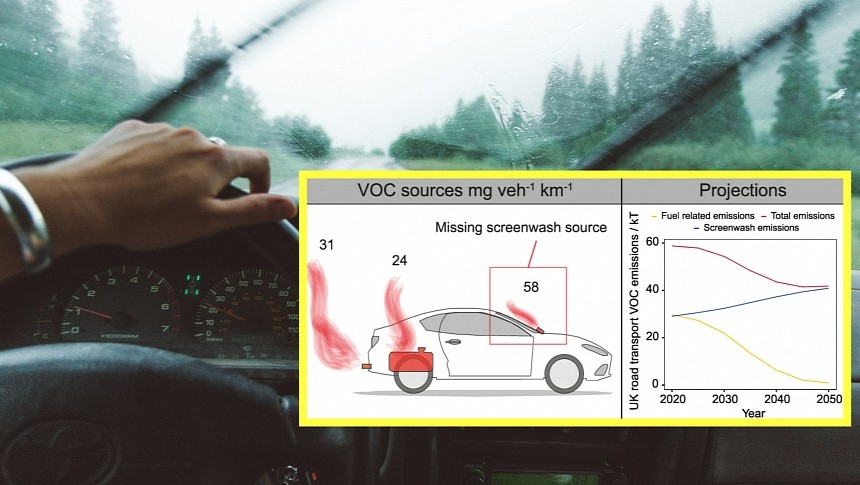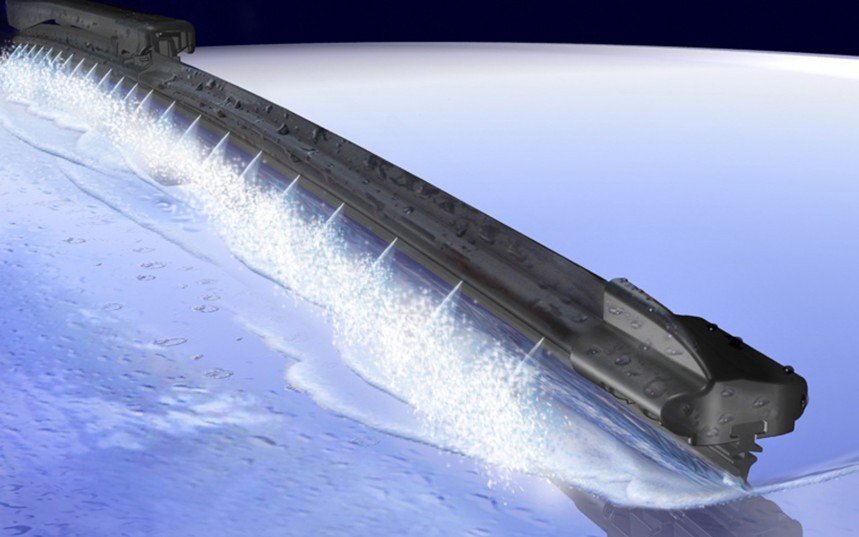If you thought buying an electric vehicle (EV) meant you did your part to lessen the human burden on the environment… Well, think again! A new study claims that not everything is about exhaust gases. Here's the latest thing you should be aware of next time you fill your tank or charge your battery.
For quite some time, hybrid and all-electric vehicles have been pushed forward as the ones to buy by customers who care about the environment and shrinking their carbon footprint. In a way, it was the right move. Self-charging hybrids and all-electric vehicles are indeed great for the average Jane or Joe. Hybrids can reduce fuel consumption, and EVs can completely eliminate the reliance on fossil fuels. The latter can also minimize another dangerous pollutant – brake dust.
However, the competition between automakers has somewhat erased the story of EVs and their positive environmental impact. Now, the main talking points are power, interior technology, design, and charging networks.
This race also worsened the matter after some companies were allowed to sell carbon credits to others, a move that helps big polluters offset their footprint with money.
Meanwhile, hybrids are not cool anymore, and plug-in hybrid (PHEV) buyers are blamed for not using their cars correctly and polluting much more than they should. For anyone even remotely interested in what's happening in the automotive space, all this back-and-forth discussion and permanently pointing the finger at the consumer can confuse even the most willing people out there.
But get ready because things are about to get even worse for drivers who care about minimizing their environmental impact – winter windshield washer fluid emissions are on the rise. Yes, that isn't good.
The study done by the University of York researchers and published by Environmental Science & Technology says these liquids contain alcohols and are part of a select group of human-made chemicals known as volatile organic compounds (VOCs). According to the Environmental Protection Agency (EPA), VOCs are to blame for contaminating groundwater often.
The Agency also found that exposure to VOCs is more common in closed spaces than outside, while some people expose themselves and others to high pollutant levels repeatedly when they use products that contain these organic chemicals.
This is one of the reasons why California adopted a ban on low-temperature windshield washer fluid. To keep the liquid from freezing, producers add methanol or alcohol to the final product. Thirty years ago, the Golden State made it illegal for stores to sell winter-specific windshield wiper fluid in counties where freezing temperatures were uncommon. The state officials were so serious about it that they even fined Ace Hardware $850,000 in 2008.
The study says the stricter regulations and the EV momentum decreased fossil fuel-related emissions. Still, VOCs remained on a positive trend throughout the years. The researchers wanted to measure if vehicle emissions other than those related to burning fossil fuels were hiding in plain sight.
They chose two key points in Manchester, UK, to install cameras. In addition, a spectrometer was used to quantify VOCs. Over 754,000 vehicles had their emissions measured.
The authors of this study say that ethanol is a "key precursor to the formation of acetaldehyde which is a highly reactive compound that is also a suspected carcinogen and is associated with various respiratory conditions."
Previous studies have shown that windshield washer fluid contributed to the formation of tropospheric ozone, which can lead to bronchitis, asthma, and emphysema. Continuous exposure can even scar lung tissue.
This recent study concluded that ethanol and methanol were the most abundant VOCs measured by the apparatus. EVs are not exempt. That's why they should be put into the same category as other road participants. Fuel-cell vehicles (FCEVs) ought to share the same fate.
Finally, the authors recommend authorities include VOCs in calculating road transport emissions and underline that windshield wiper fluid sales are less commonly reported than road transport activity. Regulators should ensure emissions are associated with the right sector so future measures target solely the culprits.
"Control of methanol and ethanol could be a potentially effective mechanism for a country to reduce overall mass emissions," concluded the researchers.
If you want to be a part of the solution, just ensure you don't use winter windshield wiper fluid when such a liquid is unnecessary.
However, the competition between automakers has somewhat erased the story of EVs and their positive environmental impact. Now, the main talking points are power, interior technology, design, and charging networks.
This race also worsened the matter after some companies were allowed to sell carbon credits to others, a move that helps big polluters offset their footprint with money.
Meanwhile, hybrids are not cool anymore, and plug-in hybrid (PHEV) buyers are blamed for not using their cars correctly and polluting much more than they should. For anyone even remotely interested in what's happening in the automotive space, all this back-and-forth discussion and permanently pointing the finger at the consumer can confuse even the most willing people out there.
But get ready because things are about to get even worse for drivers who care about minimizing their environmental impact – winter windshield washer fluid emissions are on the rise. Yes, that isn't good.
The study done by the University of York researchers and published by Environmental Science & Technology says these liquids contain alcohols and are part of a select group of human-made chemicals known as volatile organic compounds (VOCs). According to the Environmental Protection Agency (EPA), VOCs are to blame for contaminating groundwater often.
The Agency also found that exposure to VOCs is more common in closed spaces than outside, while some people expose themselves and others to high pollutant levels repeatedly when they use products that contain these organic chemicals.
This is one of the reasons why California adopted a ban on low-temperature windshield washer fluid. To keep the liquid from freezing, producers add methanol or alcohol to the final product. Thirty years ago, the Golden State made it illegal for stores to sell winter-specific windshield wiper fluid in counties where freezing temperatures were uncommon. The state officials were so serious about it that they even fined Ace Hardware $850,000 in 2008.
The study says the stricter regulations and the EV momentum decreased fossil fuel-related emissions. Still, VOCs remained on a positive trend throughout the years. The researchers wanted to measure if vehicle emissions other than those related to burning fossil fuels were hiding in plain sight.
The authors of this study say that ethanol is a "key precursor to the formation of acetaldehyde which is a highly reactive compound that is also a suspected carcinogen and is associated with various respiratory conditions."
Previous studies have shown that windshield washer fluid contributed to the formation of tropospheric ozone, which can lead to bronchitis, asthma, and emphysema. Continuous exposure can even scar lung tissue.
This recent study concluded that ethanol and methanol were the most abundant VOCs measured by the apparatus. EVs are not exempt. That's why they should be put into the same category as other road participants. Fuel-cell vehicles (FCEVs) ought to share the same fate.
Finally, the authors recommend authorities include VOCs in calculating road transport emissions and underline that windshield wiper fluid sales are less commonly reported than road transport activity. Regulators should ensure emissions are associated with the right sector so future measures target solely the culprits.
"Control of methanol and ethanol could be a potentially effective mechanism for a country to reduce overall mass emissions," concluded the researchers.
If you want to be a part of the solution, just ensure you don't use winter windshield wiper fluid when such a liquid is unnecessary.








